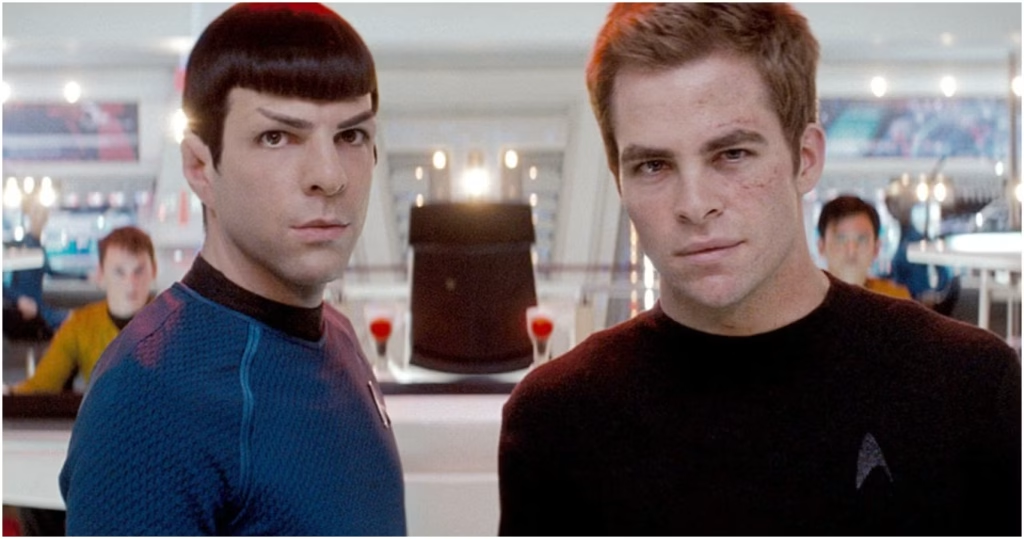Beam me up, Scotty! We’re about to embark on a warp-speed journey through the cultural impact of everyone’s favorite space cowboy, Captain James T. Kirk. Since his debut in the 1960s, Kirk has boldly gone where no man has gone before – straight into the heart of pop culture. This blog post explores how Kirk has shaped our world, from leadership styles to pickup lines that are out of this world.
A Cultural Touchstone (or Should We Say Tribble?)
Captain Kirk’s influence is so vast, it could fill a galaxy. He’s become a cultural touchstone, referenced and parodied more often than a Vulcan says “fascinating.” From The Simpsons to Family Guy, Kirk’s swagger and dramatic… pauses have inspired countless imitators. His charisma, moral fortitude, and penchant for ripping his shirt have set the gold standard for protagonists in science fiction and beyond.

The phenomenon known as “Kirk drift” shows how our favorite captain has been remixed and reimagined in popular culture. It’s like the transporter malfunctioned and scattered bits of Kirk across the pop culture universe. This evolution proves that Kirk’s character is the gift that keeps on giving, adapting faster than you can say “Kobayashi Maru.”
Redefining Leadership Archetypes (and Intergalactic Fashion)
Kirk’s leadership style has become a subject of study and admiration, both in Starfleet Academy and business schools alike. His approach to command is characterized by:
- A hands-on approach to problem-solving (and alien smooching)
- Skillful navigation of moral dilemmas (and asteroid fields)
- Strong commitment to teamwork and ethics (unless there’s a pretty alien involved)
- Balance of decisiveness and empathy (and karate chops)
These traits have set a precedent for how leaders are portrayed in popular media. Kirk’s ability to inspire his crew and make tough decisions under pressure has been analyzed more thoroughly than a Tribble’s reproductive cycle.
Embodiment of Masculinity and Progressive Ideals (in Tight Pants)
Kirk’s character is a fascinating blend of traditional American masculine ideals and progressive thought. He’s like a brawny lumberjack with a degree in interstellar diplomacy. This unique combination has made him a subject of fascination for gender studies and cultural analysis. From the late 1960s to the present, Kirk has been examined through more lenses than the Enterprise’s sensors.
His portrayal in a futuristic setting presents a juxtaposition of classic leadership traits with forward-thinking ideals. It’s like watching John Wayne pilot a spaceship while reciting poetry – oddly compelling and strangely progressive.
Paving the Way for Future Characters (and Questionable Alien Romances)
Captain Kirk’s legacy has significantly influenced the development of protagonists in television and film. His blend of charisma, intellect, and emotional depth has become a template for character development. Subsequent TV and film characters who grapple with complex moral choices often channel their inner Kirk, minus the green-skinned love interests.
Leadership Lessons for the Real World (No Phasers Required)
The leadership qualities exemplified by Captain Kirk have been widely discussed and applied to real-world scenarios. An article on StarShips.com explores Kirk’s decision-making processes and leadership style, emphasizing his confidence and ability to integrate diverse opinions for effective command. It’s like “How to Win Friends and Influence People,” but with more photon torpedoes.

Similarly, a Forbes article titled “Five Leadership Lessons From James T. Kirk” provides a detailed examination of Kirk’s leadership traits. It’s proof that even in the corporate world, sometimes you need to think like you’re facing down a Klingon warbird.
Historical and Political Context (Cold War in Space, Anyone?)
It’s crucial to consider the historical context in which Captain Kirk was created. Some scholars argue that Star Trek and Kirk’s character were often perceived through the lens of Cold War politics. His quest to spread the Federation’s values has been likened to American ideological expansionism of the time. It’s like the Space Race, but with better special effects and more meaningful speeches about humanity.
Conclusion: An Enduring Legacy (Live Long and Prosper)
Captain James T. Kirk’s impact on popular culture is as vast as space itself. He not only revolutionized the portrayal of leaders in science fiction but also gave us a treasure trove of quotable one-liners. His legacy continues to influence generations, making him a significant figure in both television history and cultural discourse.
From inspiring real-world leaders to shaping the development of fictional characters, Kirk’s influence extends far beyond the final frontier. As we continue to explore new frontiers in storytelling and leadership, the character of Captain Kirk remains a guiding star, reminding us of the power of courage, compassion, and the occasional well-timed karate chop in the face of the unknown.
Leave a Reply